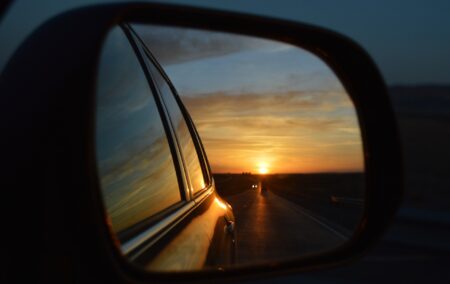After a pleasant family Christmas consisting of braai meat, scotch and chess by the braai flame, I decided to take a moment to reflect around our family home and look at some of the history captured in photographs; my grandfather in 1957 as part of the Cape Law Society, my Aunt, Nozipho Vabaza and a press clipping of her being the first woman to graduate with an LLB degree in the former Transkei, my other aunt Kholeka who ended up at Ibadan university in Nigeria before eventually reuniting with my uncle in America where he had fled to study chemistry at Syracuse in upstate New York after being banished for anti-apartheid activity.
All this is to say that I found my reflections peculiarly depressing in the context of a modern-day Mthatha that is gripped by crime, grime, decay, and municipal incompetence. In one very real sense that day bottled for me a sort of decay of the black community itself. Perhaps I suffer a kind of nostalgia blindness owing to my own particular history having spent the first eight years of my life in a completely “black existence” where the only white people I ever saw were on TV to having to exist in an almost completely “white existence” in an elite boys boarding school in Pietermaritzburg thereafter and feeling as if there was no real difference between the two.
I mean, what was the real difference between Tatu Bodlani, our neighbour two houses down who owned multiple businesses including a Wimpy I loved, who used to take me to Vela School with his daughter, and my boarding school friend James Hesse’s father who was also an entrepreneur, whose house I got lost in as an 8 year old? Is there a real difference between the Langfords who moved to Australia soon after I arrived in Pietermaritzburg because they saw the writing on the wall and the many educated black people who left the former Transkei for greener pastures?
Core ideas
My guess is that some of the core ideas of a liberal order – non-racialism, private property rights, equality before the law – are precisely attractive to me not just because of my particular history but because even if I hated anyone I wouldn’t exactly be sure who to specifically hate.
Do I hate all the black people who tormented and ridiculed me as a child and told me I’m trying too hard to be white because of my supposed Model C accent and mannerisms or do I hate the white people on Margate Beach who told my nine-year-old self my vanilla ice cream was dirty and then laughed and walked off or the white people who poured beer on my brother’s head from a balcony?
I know, I know, this whole article is an exercise in personal indulgence but I ask the reader to allow me my indulgences because somewhere in my indulgence there is a point about this country and the people in it and the psycho-social bugbears that animate people’s beliefs, behaviours, and loves and hatreds. That point I suppose relates to the fact that for all the grief and stress living in this country entails, this place is also quite a remarkable place. We should’ve had a civil war and degenerated into ethnic and racial violence in the 1990s (as international experts were predicting) but we didn’t.
Judging by our racialised socio-economic metrics we should be a Mogadishu-level hellscape with unrelenting levels of racial hatred, but we aren’t. Grifters will tell you we are, hell even those who derive some sort of weird bugbear satisfaction from our failures would tell you we are, but we really are not.
Problems
We have problems, lots of them, many of them dire but none of them are even close to intractable. Even our Government of National Unity, for all its faults is quite something; a long-in-the-tooth liberation movement in Africa peacefully conceding (some) power?
There are no coups in this country. No one is being arrested for insulting the president or members of parliament. Our press is free, our elections are free and fair. There is both a lot to appreciate and a lot to fight for to make this place so much better than it is and that’s the point:
This place really is worth fighting for and I would argue the liberal order gives us the tools to make the best fight of it.
The views of the writer are not necessarily the views of the Daily Friend or the IRR.
If you like what you have just read, support the Daily Friend

